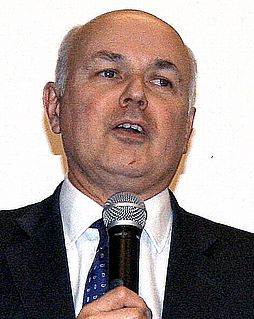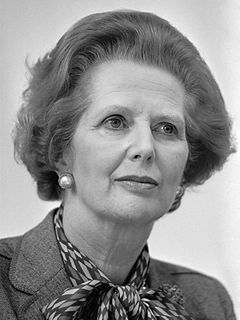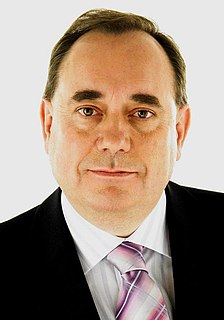
The Scottish Parliament election, 2003, was the second election of members to the Scottish Parliament. It was held on 1 May 2003 and it brought no change in terms of control of the Scottish Executive. Jack McConnell, the Labour Party Member of the Scottish Parliament (MSP), remained in office as First Minister and the Executive continued as a Labour and Liberal Democrat coalition. As of 2019, it remains the last general election victory for the Scottish Labour Party.

The first election to the devolved Scottish Parliament, to fill 129 seats, took place on 6 May 1999. Following the election, the Labour Party and the Liberal Democrats formed the Scottish Executive, with Labour Member of the Scottish Parliament (MSP) Donald Dewar becoming First Minister.

Local elections took place in various parts of the United Kingdom on 1 May 2003, the same day as the Scottish Parliamentary and the Welsh Assembly elections. There were local elections for all councils in Scotland and in most of England. There were no elections in Wales, Northern Ireland or London.

Voter turnout is the percentage of eligible voters who cast a ballot in an election. Eligibility varies by country, and the voting-eligible population should not be confused with the total adult population. Age and citizenship status are often among the criteria used to determine eligibility, but some countries further restrict eligibility based on sex, race, or religion.

The European Assembly Election, 1979, was the first European election to be held in the United Kingdom after the European Communities (EC) decided to directly elect representatives to the European Parliament. It was held on 7 June. Elections were also held in eight other EC states. European elections were incorporated into UK law by the European Assembly Elections Act 1978. Out of the 410 members of the European Parliament, 81 were elected from the UK. The electoral system was First Past the Post in England, Scotland and Wales and Single Transferable Vote in Northern Ireland.

The European Parliament Election, 1984 was the second European election to be held in the United Kingdom. It was held on 14 June. The electoral system was First Past the Post in England, Scotland and Wales and Single Transferable Vote in Northern Ireland. The turnout was again the lowest in Europe. In England, Scotland and Wales, the Liberal Party and Social Democratic Party were in alliance, collecting 2,591,635 votes but not a single seat.

The European Parliament Election, 1989, was the third European election to be held in the United Kingdom. It was held on 15 June. The electoral system was First Past the Post in England, Scotland and Wales and Single Transferable Vote in Northern Ireland. The turnout was again the lowest in Europe.

The European Parliament Election, 1994 was the fourth European election to be held in the United Kingdom. It was held on 9 June, though, as usual, the ballots were not counted until the evening of 12 June. The electoral system was, for the final European election, first past the post in England, Scotland and Wales and single transferable vote in Northern Ireland. This was the first election with 87 MEPs, the European Parliamentary Elections Act 1993 increased the number of seats for the UK from 81. For the first time, the UK did not have the lowest turnout in Europe. Turnout was lower in the Netherlands and Portugal.

East Renfrewshire is a constituency of the House of Commons, to the south of Glasgow, Scotland. It elects one Member of Parliament (MP) using the first-past-the-post system of voting.

Liverpool Riverside is a constituency represented in the House of Commons of the UK Parliament since 1997 by Louise Ellman of the Labour Party and the Co-operative Party.

The European Parliament election was the United Kingdom's component of the 2009 European Parliament election, the voting for which was held on Thursday 4 June 2009. The election was held concurrently with the 2009 local elections in England. In total, 72 Members of the European Parliament were elected from the United Kingdom using proportional representation.
The Greenock by-election, 1936 was a by-election held on 26 November 1936 for the House of Commons constituency of Greenock in Renfrewshire, Scotland.

Regional elections were held in Scotland on 5 May 1994, as part of the Local Government (Scotland) Act 1973. These were the last elections before 29 new mainland unitary authorities, established by the Local Government etc. (Scotland) Act 1994, came into effect. The councils up for election were last contested in Scottish regional elections, 1990, and vote and seat changes are compared to the 1990 results.

1999 Elections to Fife Council were held on 6 May 1999, the same day as the other Scottish local government elections and the Scottish Parliament election. The election were the first after the third boundary review which resulted in 78 individual councillors being elected.

The second election to Lothian Regional Council was held on 6 May 1982 and yielded a swing to the Conservatives. Whilst the Labour presence was reduced, the Conservatives were unable to win an outright majority, and both parties exited the election with 22 seats. The council Conservative group, under Brian Meek, was able to take over the council however due to support from the SDP-Liberal Alliance councillors.
An Election to Glasgow City Council was held on 1 May 1973, alongside municipal elections across Scotland. Of the councils 113 seats, 37 were up for election. Labour managed to increase its majority on the council to 55.

The fourth election to Lothian Regional Council was held on 8 May 1986 as part of the wider 1986 Scottish regional elections. The Lothian result was little different to the wider Scottish results, which saw Labour making strong gains across Scotland. In Lothian this allowed Labour to secure their majority on the 49-seat council.
The 2016 Rossendale Borough Council election Took place on 5 May 2016 to elect members to one third of Rossendale Borough Council in England prior to elections Labour held 19 seats Conservatives held 15 with 3 Independents. The results was a Labour Victory with 3 seats gained 2 from the Conservatives and 1 from Independent. UKIP The Green Party and National Front along with several Independents also fielded candidates. This was on the same day as other local elections. It was worth noting that the Conservative party were only requiring a net gain of three seats to take control of the council. The resulting Labour victory was a surprise. The most surprising was Labour's taking of the seemingly safe Conservative ward of Eden.
The 2016 Tamworth Borough Council election took place on 5 May 2016 to elect members of Tamworth Borough Council in England. This was on the same day as other local elections. Overall turnout was 30.93%.
The elections for Oxford City Council took place on 5 May 2016. This was on the same day as other local elections. As Oxford City Council is elected by halves, one seat in each of the 24 wards is up for election.















